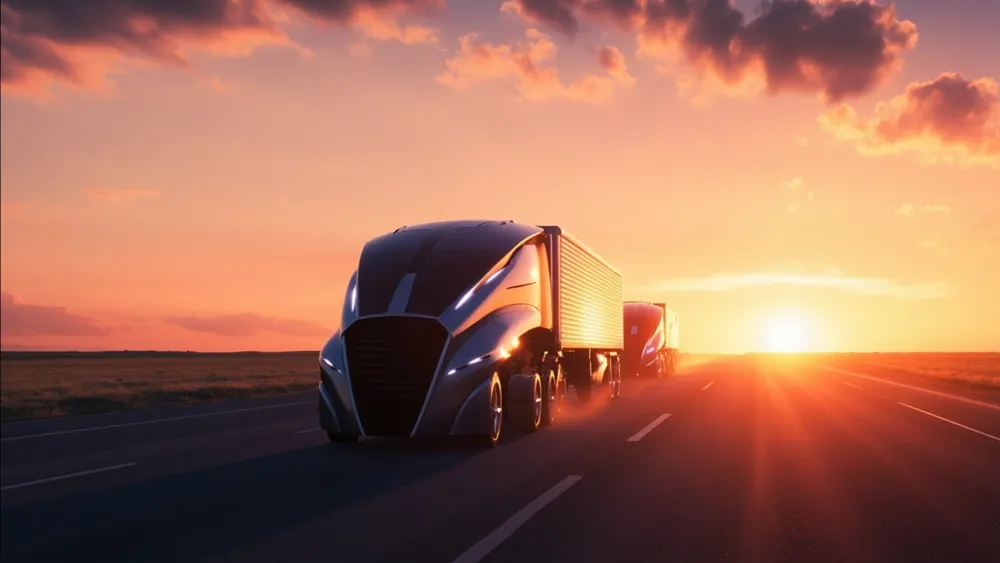Experts Predict Future of Autonomous Trunking Logistics: What to Expect Next

On May 23, a significant seminar was convened at Tsinghua University, gathering representatives from academia, industry organizations, financial institutions, and pilot cities to delve into the burgeoning field of autonomous driving for trunk logistics. This event also marked the unveiling of the Autonomous Driving Trunk Logistics Commercial Report, the first domestic report of its kind, which provides a comprehensive analysis of the industry.
The report was collaboratively produced by the National Key Laboratory of Intelligent Green Vehicles and Transport, along with the Western Science City Intelligent and Connected Vehicle Innovation Center and Zhongguancun Technology Leasing Co. It highlights that autonomous trunk logistics is at a pivotal moment, transitioning from pilot validations into small-scale commercial implementations.
This transition is being propelled by advancements in four critical dimensions: technological developments and cost reductions, innovative business models, increasing market acceptance, and evolving policy frameworks. This coordinated effort reflects a broader trend in the logistics sector that is increasingly looking towards automation for efficiency and scalability.
Li Keqiang, an academician with the Chinese Academy of Engineering and professor at Tsinghua University's School of Vehicle and Mobility, emphasized that the evolution of intelligent vehicles and transportation systems will dramatically transform industrial structures and value chains. This transformation is poised to significantly alter transportation methods and consumer product usage.
Zhao Xiangmo, president of Xi'an University of Architecture and Technology, underscored the necessity of collaborative efforts to address the hurdles inherent in scaling autonomous driving technology within trunk logistics. He advocated for integrated cooperation among government entities, industry stakeholders, academia, and financial institutions to foster a cohesive ecosystem.
During the seminar, Wei Junqing, CEO of the autonomous trucking firm KargoBot, presented a compelling case study titled 'Application Practices in Autonomous Driving for Trunk Logistics: A New Paradigm of Autonomous Trucking with Vehicle-Road-Cloud Integration.' This presentation outlined KargoBot's innovative approach to integrating technology with logistical operations.
Wei introduced KargoBot's Level 4 (L4) hybrid intelligent convoy solution, which comprises a lead vehicle operated by a driver followed by multiple autonomous trucks. This innovative model is designed to significantly cut labor costs by up to 83 percent and reduce energy expenses by 10 percent, while enabling vehicle-to-vehicle communication to enhance operational reliability and adaptability.
KargoBot has successfully implemented this solution in various regions, including Ordos in the Inner Mongolia autonomous region, across short, mid, and long-haul freight operations, creating a seamless technology-to-commercialization loop. This marks an important step in advancing autonomous logistics solutions.
To date, KargoBot has achieved over 20 million kilometers of L4 autonomous convoy operations and transported 200 million ton-kilometers of bulk goods using these autonomous trucks. Notably, KargoBot became the first in the sector to exceed 100 million ton-kilometers of validated safe operational data for L4 vehicles, indicating that platooning freight through L4 autonomous driving may pave the way for substantial commercial viability in the emerging vehicle-road-cloud integration landscape.
Read These Next

China's Industrial Profits Rise 1.4% Year-on-Year in Jan-April 2023
China's major industrial firms saw a 1.4% profit rise in early 2025, totaling 2.12 trillion yuan, signaling economic recovery.

Sailing Warning: Live Fire Shooting in Parts of Beibu Gulf
From May 28-29, ships are banned in Beibu Gulf due to live fire exercises, affecting local and international navigation safety.

Chinese Delegation Completes Meetings of ITU Radiocommunication Working Groups 5A and 5C
From May 12-22, ITU's WP5A and WP5C meetings in Geneva focused on wireless access and communication systems, showcasing China's leadership.
